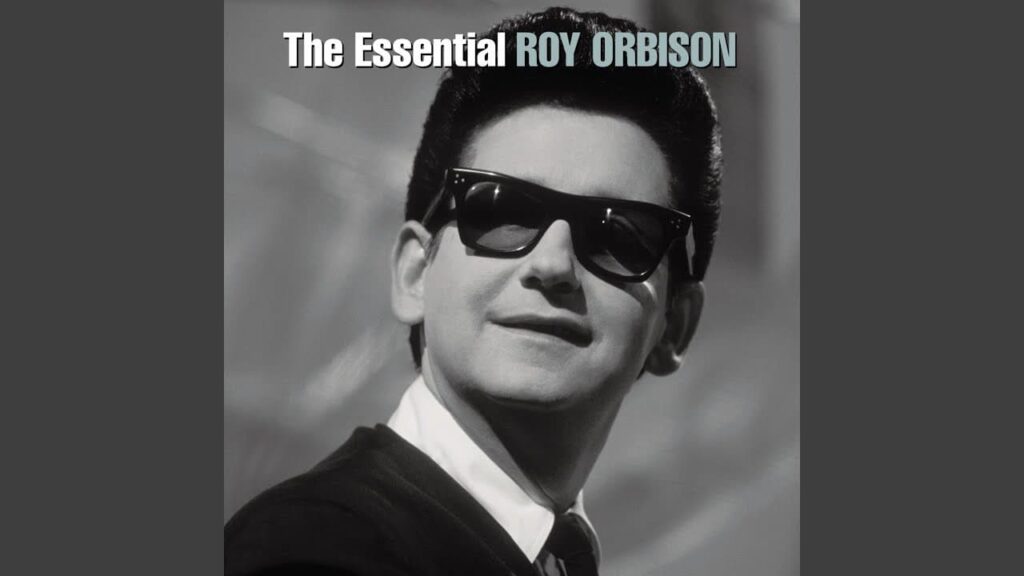
A Melancholy Masterpiece of Lingering Pain
In the annals of rock and roll, few voices resonate with the haunting pathos of Roy Orbison. His was a sound that didn’t merely entertain; it plumbed the depths of human sorrow and yearning. Among his most poignant and enduring works is the 1961 single, “I’m Hurtin’,” a B-side gem that, while perhaps overshadowed by some of his bigger hits, holds a special place in the hearts of those who appreciate the true artistry of a mournful ballad. This was not a song designed for the top of the charts; it was an intimate confession, a quiet echo of a shattered heart.
Released on Monument Records with the A-side single, “Candy Man,” “I’m Hurtin'” emerged into a musical landscape that was rapidly changing. Rock and roll was still finding its footing, and artists like Orbison were pushing its boundaries, infusing it with operatic grandeur and profound emotional weight. While “Candy Man” found its way to number 25 on the Billboard Hot 100, “I’m Hurtin'” remained largely a critics’ darling and a fan favorite, a testament to its raw, unadorned beauty. It’s a song that proves you don’t need a high chart position to achieve immortality. Its power lay not in its commercial success, but in its ability to connect on a deeply personal level with anyone who has ever known the ache of unrequited love or the desolation of a lost connection.
The story behind “I’m Hurtin'” is one of classic heartache, a theme Orbison returned to again and again throughout his career. The song was co-written by Orbison and the legendary songwriter, Don Gibson, a man often referred to as “The Sad Poet” of country music. Their collaboration was a perfect storm of melancholy genius. Orbison’s voice, with its stunning, multi-octave range and signature vibrato, was the ideal instrument for Gibson’s lyrics. The narrative is simple yet devastating: the protagonist sees a photograph of a former lover and is instantly transported back to a time when their love was vibrant and alive. The sight of her “picture in the frame” becomes a catalyst for an onslaught of pain, a stark reminder that the memories, however sweet, are now nothing but a source of torment. The lyrics don’t shy away from the intensity of this feeling: “Your kiss is still a memory, your lips are on my mind / It just ain’t no use to me, you left so far behind.” It’s a feeling so many of us have experienced—that moment when a seemingly harmless object or image triggers a flood of emotions you thought you had buried.
The brilliance of “I’m Hurtin'” lies in its stark, almost minimalist arrangement. The song’s sparse instrumentation—a gentle, weeping guitar, a subtle bass line, and understated drums—serves to highlight the raw emotion in Orbison’s voice. The production, courtesy of Fred Foster, stripped away any unnecessary frills, allowing the vocal performance to take center stage. This choice was deliberate and powerful; it forces the listener to focus on the pure, unvarnished agony being conveyed. It’s a masterclass in less-is-more. As the song builds, so too does the intensity of Orbison’s delivery, culminating in a soaring, almost operatic wail that encapsulates the full weight of the narrator’s sorrow. This is not just a song; it’s a cathartic release, a shared moment of vulnerability between the artist and his audience. For those of us who grew up with Orbison’s music, this is the sound of an era, a bittersweet echo of simpler times and more profound pains. It’s a reminder that even in an age of fast-paced change, the human heart remains a constant, capable of both immense love and shattering grief.
This song, along with others from his seminal album Lonely and Blue, helped solidify Roy Orbison’s reputation as “The Big O” and a master balladeer. His ability to fuse country, rockabilly, and pop into a sound uniquely his own created a legacy that continues to influence countless artists today. “I’m Hurtin’,” in its quiet, melancholic way, stands as a testament to that legacy. It’s a song to be listened to late at night, in a moment of quiet reflection, when the ghosts of the past come calling and a simple tune is all you need to remind you that you are not alone in your sorrow. It’s a timeless, beautiful piece of music that speaks to the shared human experience of pain and loss, a song that will resonate as long as there are hearts to be broken.